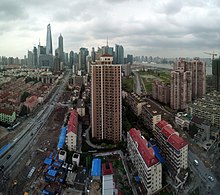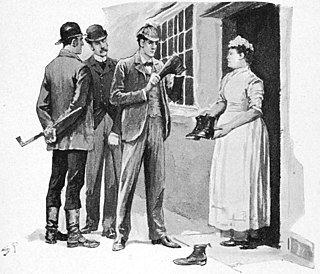
Detective fiction is a subgenre of crime fiction and mystery fiction in which an investigator or a detective—whether professional, amateur or retired—investigates a crime, often murder. The detective genre began around the same time as speculative fiction and other genre fiction in the mid-nineteenth century and has remained extremely popular, particularly in novels. Some of the most famous heroes of detective fiction include C. Auguste Dupin, Sherlock Holmes, and Hercule Poirot. Juvenile stories featuring The Hardy Boys, Nancy Drew, and The Boxcar Children have also remained in print for several decades.

Crime fiction, detective story, murder mystery, mystery novel, and police novel are terms used to describe narratives that centre on criminal acts and especially on the investigation, either by an amateur or a professional detective, of a crime, often a murder. It is usually distinguished from mainstream fiction and other genres such as historical fiction or science fiction, but the boundaries are indistinct. Crime fiction has several subgenres, including detective fiction, courtroom drama, hard-boiled fiction, and legal thrillers. Most crime drama focuses on crime investigation and does not feature the courtroom. Suspense and mystery are key elements that are nearly ubiquitous to the genre.

Tsui Hark, born Tsui Man-kong, is a Hong Kong filmmaker. Tsui has directed several influential Hong Kong films such as Zu Warriors from the Magic Mountain (1983), the Once Upon a Time in China film series (1991–1997) and The Blade (1995). Tsui also has been a prolific writer and producer; his productions include A Better Tomorrow (1986), A Better Tomorrow II (1987), A Chinese Ghost Story (1987), The Killer (1989), The Legend of the Swordsman (1992), The Wicked City (1992), Iron Monkey (1993) and Black Mask (1996). He is viewed as a major figure in the Golden Age of Hong Kong cinema and is regarded by critics as "one of the masters of Asian cinematography".
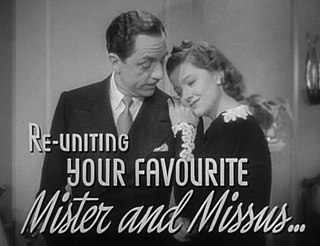
Nick and Nora Charles are fictional characters created by Dashiell Hammett in his novel The Thin Man. The characters were later adapted for film in a series of films between 1934 and 1947; for radio from 1941 to 1950; for television from 1957 through 1959; as a Broadway musical in 1991; and as a stage play in 2009.
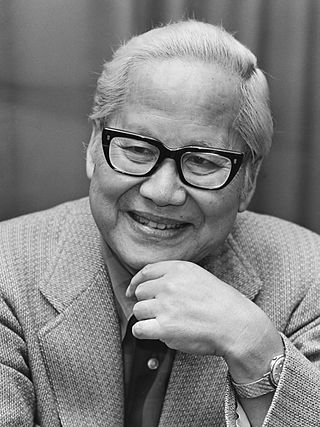
Keye Luke was a Chinese-American film and television actor, technical advisor, artist, and a founding member of the Screen Actors Guild.
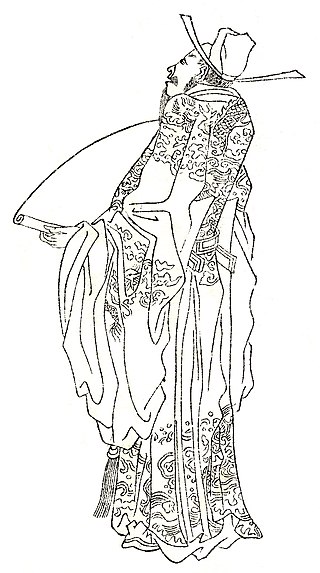
Judge Dee, or Judge Di, is a semi-fictional character based on the historical figure Di Renjie, county magistrate and statesman of the Tang court. The character appeared in the 18th-century Chinese detective and gong'an crime novel Di Gong An. After Robert van Gulik came across it in an antiquarian book store in Tokyo, he translated the novel into English and then used the style and characters to write his own original Judge Dee historical mystery stories.
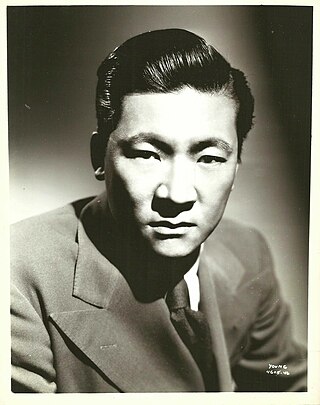
Victor Sen Young was an American character actor, best known for playing Jimmy Chan in the Charlie Chan films and Hop Sing in the western series Bonanza. He was born in San Francisco, California to Gum Yung Sen and his first wife, both immigrants from China.

David Hewson is a contemporary British author of mystery novels. His series of mysteries, featuring police officers In Rome, led by the young detective and art lover Nic Costa, began with A Season for the Dead, has now been contracted to run to at least nine instalments by British, American, European and Asian publishers. The author's debut novel, Shanghai Thunder, was published by Robert Hale, in the United Kingdom, in 1986. Almost all copies of the book were sent to libraries, and it has been reissued.

Qiu Xiaolong is a Shanghai born-American crime novelist, English-language poet, literary translator, critic, and academic, who has lived for many years in St. Louis, Missouri. He originally visited the United States in 1988 to write a book about T. S. Eliot, but following the 1989 Tiananmen Square protests and massacre, he remained in America to avoid persecution by the Chinese Communist Party.

Detective Investigation Files IV is the 4th and final installment of the Detective Investigation Files TV franchised by TVB in Hong Kong. It won two TVB Anniversary Awards, including Best Actor for Louis Koo and Best Actress for Jessica Hsuan.

Walter Tso Tat-Wah was a film actor of Hong Kong, most famous for the roles he played in a number of Wuxia films in the 1950s and 1960s.

Tao Fong Shan, officially known as To Fung Shan, is a hill with a height of 130 metres (430 ft). It is in Sha Tin, New Territories, Hong Kong. A road called To Fung Shan Road leads to the summit, where a Christian Centre can be found.
Robert Rotenberg is a Canadian criminal defence lawyer and writer, based in Toronto. He has worked as a criminal defence lawyer from the 1990s. As of March 1, 2024, he practices as part of the association of Rotenberg Shidlowski Jesin. Rotenberg's first novel, Old City Hall is an international best-seller. He has written six additional novels.

Fist of Fury is a 1995 Hong Kong martial arts television series adapted from the 1972 film of the same title. Produced by Asia Television (ATV) and STAR TV, the series starred Donnie Yen as Chen Zhen, a character previously portrayed by Bruce Lee in Fist of Fury (1972) and Jet Li in Fist of Legend (1994). The series is also related to the 2010 film Legend of the Fist: The Return of Chen Zhen, in which Yen reprises his role.
Karl Ludvig Reichelt was a Norwegian Lutheran missionary and religious scholar who worked in China. He was a missionary for the Norwegian Missionary Society from 1903 to 1922. In 1922 he established the Nordic Christian Buddhist Mission. He also founded the institution Tao Fong Shan in Hong Kong. He became most known for his work among Buddhists and writings about Buddhism.

Li Ching, also spelled Lee Ching, was a Hong Kong actress.
David Charles Rotenberg, was a Canadian author and professor emeritus of theatre studies at York University, where he taught graduate students for over 25 years, as well at the Professional Actors Lab in Toronto, which he founded as the artistic director. David Rotenberg has been referred to as one of Canada's "most notable acting teachers and coaches," and may be the nation's best known master acting teacher. During the formative part of his career, he was a theatre director in New York City and staged two Broadway shows, returning to Toronto in 1987. In 1994, he directed the first Canadian play to be staged in the People's Republic of China, which inspired his career as a novelist, beginning with the five Zhong Fong mysteries set in modern Shanghai as well as the historical fiction novel Shanghai. After writing a series of speculative thrillers set in The Junction, Toronto, he began a science fiction series in 2017. He passed away on Nov 9, 2023.

The Junction Chronicles is a trilogy of Canadian speculative thrillers by David Rotenberg, whose protagonist, acting coach Decker Roberts, a synaesthete with a special talent for determining the truth in statements, lives in the neighbourhood of The Junction in Toronto, supplementing his income with his unique talent and becoming involved with American intelligence agents after his life begins to fall apart. The series was first published by Simon & Schuster between 2012 and 2014.
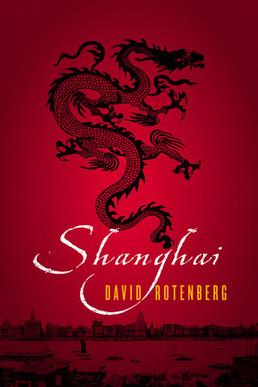
Shanghai: The Ivory Compact is an epic historical novel by Canadian theatre director and acting coach David Rotenberg, spanning several centuries of the history of the city of Shanghai. While Shanghai was written as a stand-alone story, it includes cameo appearances by young versions of characters who appear in Rotenberg's detective series set in contemporary Shanghai. Shanghai received critical acclaim and sold well worldwide.
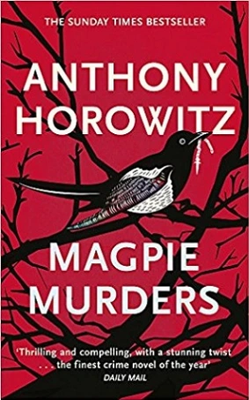
Magpie Murders is a 2016 mystery novel by British author Anthony Horowitz and the first novel in the Susan Ryeland series. The story focuses on the murder of a mystery author and uses a story within a story format.

